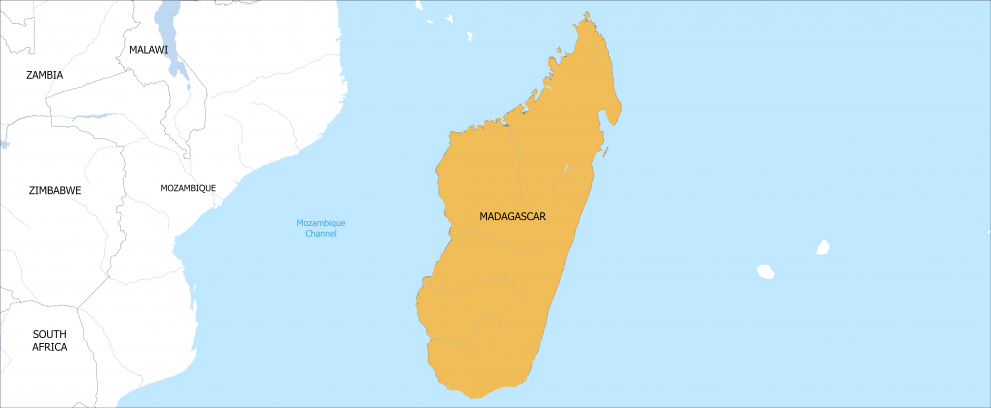Introduction
Madagascar is exposed to various major climate shocks, including, cyclones, floods and long periods of drought coupled with inflation. The humanitarian situation remains fragile because of the El Niño, natural hazards and economic factors.
The nutrition situation in the Grand Sud-Est of Madagascar has remained worrisome since 2021 due to successive cyclones, while the humanitarian situation in the Grand Sud is expected to deteriorate further with the current El Niño conditions characterized by rainfall deficits.
What are the needs?
Some 2.29 million people need urgent humanitarian assistance in 2024. This includes 1.22 million people affected by acute food insecurity.
Moreover, nearly 460,000 children under 5 years old are likely to suffer from global acute malnutrition.
Access to water is a structural problem and is insufficient in periods of drought, which increases the prevalence of water-related diseases.
Madagascar continues to experience polio and malaria epidemics, placing a burden on already weak health services. Compounding the situation is the El Niño and La Niña-induced climate extremes.
Overall economic and social structures have been impacted by years of crisis, causing internal migration and use of negative coping mechanisms; this has exacerbated social protection needs with child abuse and gender-based violence on the rise, as well as increased school dropout.
Protection is a key sector that remains largely unaddressed. The level of prevention and response is currently very low.

How are we helping?
The 2024 funding of €13 million aims to reinforce the response provided in recent years, with a focus on hard-to-reach and under-served areas of Grand Sud-Est and a maintained presence in the Grand Sud to enable a scale-up and contribute to system strengthening. Additional funding will address the El Niño-induced drought and ongoing food insecurity.
Our support will help provide access to food, education in emergencies, and nutrition services while responding to the specific needs of the most vulnerable people and addressing the increasing cost of logistics.
We will continue integrating protection considerations into all interventions. Strengthening coordination at national level, as well as logistics capacities, is an integral part of the preparedness and response.
The EU is also working on preparedness for natural hazards, including tropical cyclones/storms and drought.
Furthermore, Madagascar is benefitting from the IFRC Programmatic Partnership for the SAIO region, which includes anticipatory action/disaster preparedness.
In 2023, the EU allocated €18.1 million for humanitarian aid in Madagascar, including allocations to:
- assist those most affected by tropical cyclone Freddy in February 2023,
- early warning and disaster preparedness interventions to limit future risks,
- reinforcing the air operation set up by the UN Humanitarian Air Service (UNHAS) with a helicopter, enabling humanitarian actors to assist communities affected by the flooding and other damage caused by cyclones.
Last updated: 18/11/2024
Facts & figures
1.7 million people are highly food insecure and need assistance
17 districts in Grand Sud and Grand Sud-Est regions are classified as being at crisis level (integrated food security phase classification Phase 3 and above) for the 2024 lean season
Around 460,000 children under 5 are likely to suffer from global acute malnutrition
EU humanitarian funding:
€13 million in 2024
€18.1 million in 2023
€19.9 million in 2022

